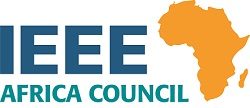Africa Council Overview
IEEE Africa Council is born!
The IEEE Board of Directors approved formation of IEEE Africa Council on June 24, 2018. The inaugural meeting of the Council which held in Tunis on 29th June 2018 was attended by VIPs, Jim Jefferies, IEEE President and Margaretha Eriksson, IEEE Region 8 Director. The other guest speakers who made presentations on how Africa Sections can leverage on available opportunities in their organizations were Sohaib Sheikh, IEEE EAB Committee member; Jamil Dimassi, IBM University Relations Leader in North-West Africa; Professor Jelel Ezzine, UNESCO Chair on Science, Technology and Innovation Policy and Bilel Jamoussi, ITU-T Study Groups Department.
Other important personalities were Jean Gabriel Remy, former IEEE R8 Director; Cherif Amirat, IEEE Chief Information Officer; Shaun Kaplan, Africa Area Committee Member; Adel M. Alimi, Tunisia Section Chair-Elect and Maciej Borówka, Poland Section Student Activities Chair.
The Section Chairs who attended the inaugural meeting were;
- Abdelouahab Mekhaldi – Algeria
- Eric Kuada – Ghana
- Charles Onyango – Kenya
- Nasser Assem – Morocco Vice Chair
- Raphael Onoshakpor – Nigeria
- Darryn Cornish – South Africa Vice Chair
- Habib Kammoun – Tunisia
- Simon Muwowo – Zambia
Sub-Section Chairs who attended were
- Shedden Masupe – Botswana
- Lwanga Herbert – Uganda
Activities
The Council was formed by agreement of the IEEE Sections and Subsections, and it exists at their pleasure. It is intended to act as a subordinate committee of the Sections and Subsections and they have the right to direct its operation.
IEEE Africa Council is the umbrella organization which provides a centralized coordinating body of all IEEE Sections and Subsections in the African region.
It is formed by the Sections and Subsections to do only those delegated tasks that can be best done together by the Sections and Subsections rather than singly by each Section or Subsection.
The primary objectives of the Council are to:
- Further the aims and objectives of the IEEE.
- Coordinate the inter-Sectional activities of the constituent Sections and Subsections.
- Provide effective representation and support for the constituent Sections and Subsections.
- Promote IEEE activities in Africa.



